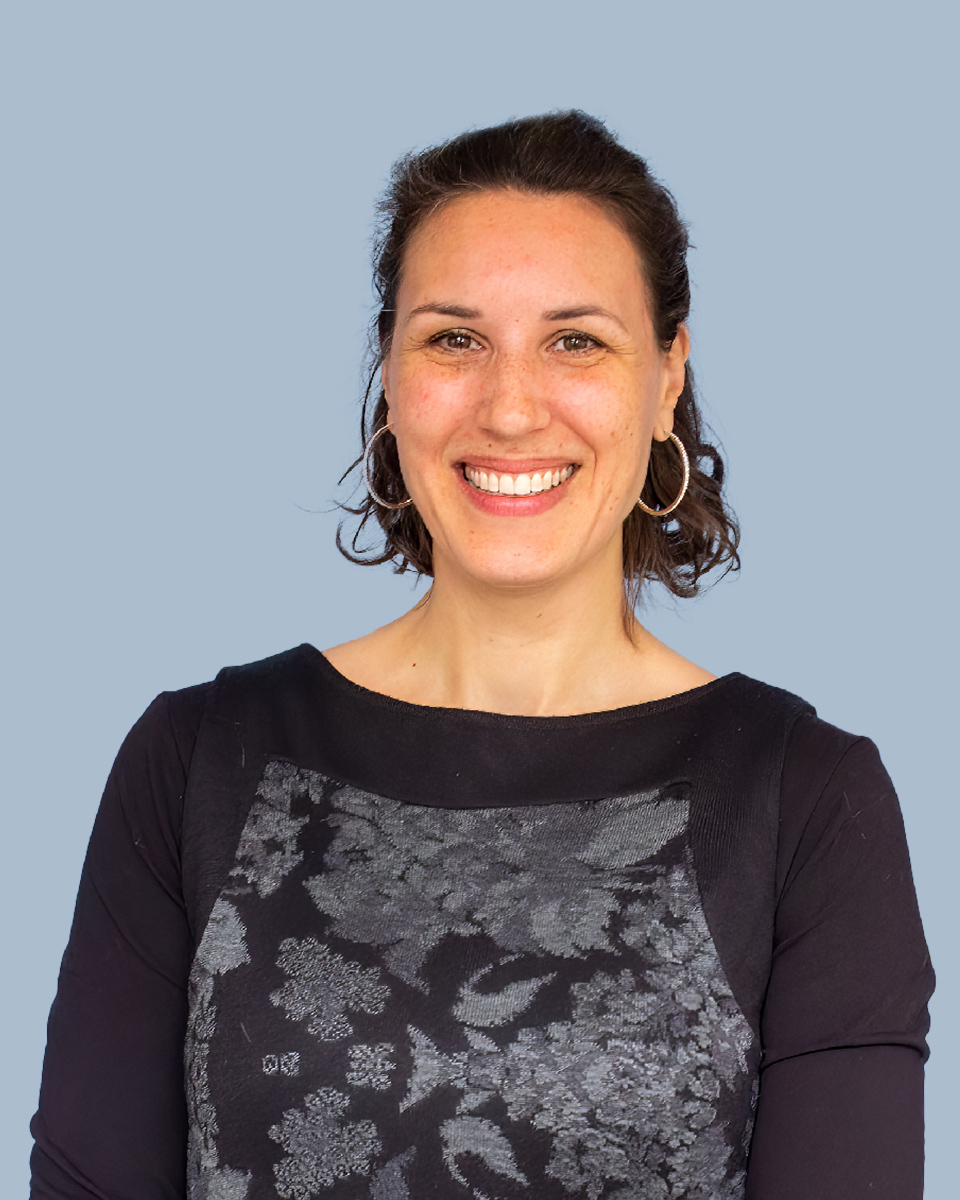Jacinthe Côté
Jacinthe Côté
PhD in biology, 2011
Senior Director, Innovation and R&D, Farinart

“I noticed that it increased the value of the words that came out of my mouth. In the end, the PhD allowed me to do a lot of things that weren’t on my original path.”
Science and its applications are the common thread running through Jacinthe Côté’s career, which has already taken a number of twists and turns, from nutrition to communications to the agri-food industry. Having been on the job market for over a decade after completing her master’s studies, it was the quest for the antimicrobial properties of cranberries that led her to take part in research that earned her a doctorate in biology at INRS.
Ms Côté first trained to become a nutritionist at McGill University and practised the profession part-time while undertaking a master’s degree in agri-food science and technology. “I felt that my training lacked an analytical chemistry component,” she recalls. “The effects of processing on the nutritional value and properties of foods were not sufficiently covered in the nutrition programme,” she says. Although she enjoyed her master’s studies and her dissertation supervisor offered her an accelerated route to a doctorate, she declined the offer. “I was looking forward to graduating because I was very attracted to the job market. I was considering opportunities in public health or industry. I chose the latter, and that has defined the course of my career,” she says.
At the same time, while studying for her master’s degree, she began publishing a column in the Gesca group of dailies across Quebec (La Presse, Le Soleil, Le Droit, Le Nouvelliste, etc.). Her articles on nutrition issues, food processing and the nutritional value of food appeared in these newspapers for a dozen years. “I’ve always really enjoyed this communication aspect of science. For me, it was a matter of course to share my knowledge at conferences, in interviews and in columns in the media,” she says.
After an initial stint at Lallemand, it was while working in technical support and R&D on the development of industrial cranberry-based products at the processor Canneberges Atoka (now Ocean Spray) that she met Professor Monique Lacroix, a specialist in applied food science, at a conference.
“In short, the company was looking to develop a cranberry juice concentrate with a better flavour profile. At the same time, there was an interest in isolating cranberry fractions in order to study the effects of the process on the juice's antimicrobial properties,” she sums up. While the services of Pre Lacroix’s laboratory were retained to carry out the study, Ms Côté found herself “rubbing shoulders with a lot of INRS students and embarking myself on an opportunity for doctoral studies as part of my work. It was a great collaboration between academic and industrial research and, as a bonus, I obtained a degree and had the chance to meet researchers with whom I am still in contact,” she says with humour.
She has a very positive impression of her interactions with the Centre Armand-Frappier Santé Biotechnologie community, even though she didn’t spend much time on the Laval campus because she was doing some of her research at her company’s laboratory in Centre-du-Québec. She also had the opportunity to rub shoulders with members of the student and scientific community at the Centre Eau Terre Environnement as part of her work in food processing. “At INRS, I met people who were enthusiastic, passionate and focused on the relevance of their research work,” she says.
She says that her doctoral degree has given her an important stamp of credibility: “I noticed that it increased the value of the words that came out of my mouth. I saw that it commanded respect in research and development and that my employer attached a lot of importance to it,” she says of Lallemand Boulangerie, in the Hochelaga-Maisonneuve district, where she was director of product management.
With hindsight, she says one shouldn’t hesitate to go back to graduate studies. However, she advises women to continue their studies as much as possible before having children, given the difficulties of studying when you have dependents. “Finish your studies, then you can think about taking time off, planning a trip, starting a family...,” she recommends. Although when she was younger she didn’t feel the desire to study for a doctorate, which she associated with an academic career, she is proud to have kept an open mind, returned to her studies and completed her doctoral thesis when her daughter was less than a year old.
She also encourages students to get a varied education in the sciences and even to complement their studies with management studies in order to have “a wider range of knowledge and open up even wider career opportunities,” she says. She adds that doctoral studies are “an opportunity to develop a variety of skills: from project management to writing and publishing, as well as managing staff, communications and grant applications. In the end, the PhD allowed me to do a lot of things that weren’t on my original path,” she sums up.
After briefly stepping away from applied research to work at National Public Relations, she is now back in industry as Senior Director, Innovation and R&D, at Farinart, a producer of grain blends and flours. She says she always relies on science in her work. “Facts and verifiable data are essential,” she says. “Starting a conversation with emotions or subjective elements is a recipe for things to get out of hand,” she adds. “Relying on facts rather than perceptions is what opens up the possibility of dialogue and constructive exchanges. It’s the basis of relationships and human relations. It’s the approach I use for both businesses and consumers,” she concludes.
[As shared in November 2023.]
